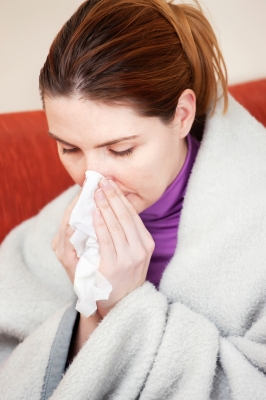Regardless of the temperature around the country, it’s still winter, and that means that we are all still stuck in the middle of cold and flu season. According to the CDC, the flu season usually hits its peak in the U.S. in January and February, but widespread flu activity can occur as late as May. This means that unless you received a flu vaccine, you are at risk for contracting the flu, or at the very least, a cold. Luckily, there are steps that you can take to decrease your risk of illness and pump up your immune system to keep you going all winter long. Nobody wants to spend a week in bed, stuffed up and achy, so check out these three key things that can bring down a women’s immunity:
1. Lack of activity
It’s easy to use the lower temperatures and grey skies as an excuse for not spending time outdoors during the winter, but a lack of physical activity can seriously slow down your metabolism. When your metabolism slows down, your body can’t absorb nutrients at the speed that it’s used to. This means that not only are you likely to gain weight, but that you’re not getting all of that daily nutrition your body craves. Make sure to actually take breaks from work that includes getting up and walking around every few hours – you’ll feel much more awake if you do.
2. Junk food and snacking
Winter brings a lot of holidays, and even though most of the major wintertime holidays have passed, all of those desserts and treats are still hanging around our kitchens and offices. Cookies, cakes, soda, and the like lack the vital nutrients your body needs to fight off that cold virus that can knock you off your feet. Stick to the fruits and vegetables that you know you should be eating all year-round. You’ll be grateful for those carrot sticks and apple slices when everyone else at work is out with a cold.
3. Late nights/early mornings
Sleep is one of the top important health to-dos that so many people put off, but getting a good night’s sleep is one of the best things you can do to improve your immune system and repair your body after a long day. While asleep, your body produces melatonin which helps the immune system make white bloods cells. These white blood cells defend the body from bacteria which can make you ill. Make sure to clear your schedule as best as you can for seven to eight hours of sleep a night.


